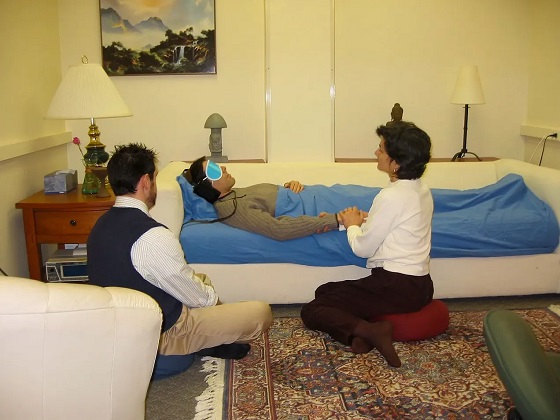Health
Euthanasia Prevention Coalition hopes to derail plan to offer euthanasia for people with mental illnesses

From LifeSiteNews
The Euthanasia Prevention Coalition is urging support for a campaign to reverse Canada’s decision allowing assisted suicide for those suffering with mental illness.
The Euthanasia Prevention Coalition needs your help to implement a successful campaign to reverse the decision to permit euthanasia for mental illness in Canada.
EPC has launched a petition to the justice minister and the justice critics demanding that the Canadian government reverse its decision to permit “MAiD” (Medical Assistance in Dying) for mental illness alone and demanding that Canadians with mental illness not be abandoned to death by euthanasia.
EPC has printed postcards (picture below) that can be ordered for free by calling: 1-877-439-3348 or emailing: [email protected].

EPC is also planning to release a video on euthanasia for mental illness soon.
Please consider making a donation towards the cost of this campaign here.
Background information
When the Canadian government expanded its euthanasia law (MAiD) in March 2021 (Bill C-7) it did so by removing the terminal illness requirement and permitting Canadians to be poisoned to death if they have an irremediable medical condition.
Bill C-7 also added the option of euthanasia for mental illness alone. Bill C-7 originally provided a two-year moratorium on euthanasia for mental illness to give them time to prepare for this expansion. In 2023 the government extended the moratorium for another year. Unless the government pauses its current plan, euthanasia for mental illness alone will become an option on March 17, 2024.
In February 2023, the Angus Reid Institute published a poll indicating that 31 percent of Canadians supported euthanasia for mental illness alone, with the highest support being in Quebec (36 percent) and the lowest support being in Saskatchewan (21 percent). In September 2023, the Angus Reid Institute conducted another poll which indicated that support for euthanasia for mental illness alone had dropped to 28 percent of Canadians.
Some real life stories
In August 2022, Global News reported the story of a Veterans Affairs employee who advocated euthanasia for a veteran living with PTSD. The article stated:
A Canadian Forces veteran seeking treatment for post-traumatic stress disorder and a traumatic brain injury was shocked when he was unexpectedly and casually offered medical assistance in dying by a Veterans Affairs Canada (VAC) employee, sources tell Global News.
Sources say a VAC service agent brought up medical assistance in dying, or MAID, unprompted in the conversation with the veteran. Global News is not identifying the veteran who was seeking treatment.
Canadians were shocked that a veteran who served the country and was seeking help for PTSD was offered (MAiD) euthanasia. The story was published around the same time as several other stories of people with disabilities who were approved for euthanasia based on poverty, homelessness, or being unable to obtain medical treatment.
The Tyee published in August 2023 the story of Kathrin Mentler (37) who lives with suicidal ideation. Mentler, who said that she has lived with depression, anxiety, and suicidal thoughts for many years, was offered euthanasia at the assessment centre at the Vancouver General Hospital when she was seeking help for suicidal ideation.
According to the article, Mentler went to the Vancouver General Hospital to receive help. The article states that she was told by the counsellor that the mental health system was “completely overwhelmed,” there were no available beds, and the earliest that she could talk with a psychiatrist was in about five months. The counsellor then asked Mentler if she had ever considered medically assisted suicide.
Canadians reacted strongly to the Mentler story as she was experiencing suicidal ideation and offered euthanasia while seeking a “safe place.” It must be noted that euthanasia for mental illness was technically illegal in June 2023 when it was offered as an option to Mentler.
An editorial published by the Globe and Mail on November 4, 2023, quoted Dr. K Sonu Gaind, chief of psychiatry at Sunnybrook Health Sciences Centre in Toronto, stating that there is “absolutely no consensus” as to what constitutes an irremediable medical condition when it comes to patients with mental illness. This comment is important because the law requires that a person to be approved for euthanasia, must have an irremediable medical condition.
There have been many articles in the media concerning people with disabilities who asked for or received euthanasia (MAiD) based on poverty, homelessness, or an inability to obtain medical treatment.
Similar to people with disabilities, people with mental health issues are more likely to live in poverty, to be homeless or to struggle to obtain the medical treatment that they need.
The battle to protect people with mental illness has not ended
On December 13 Justice Minister Arif Virani stated that the federal government may “pause its original plan” to permit euthanasia (MAiD) for mental illness.
Members of Parliament will have the opportunity to oppose euthanasia for mental illness when they return to Parliament after the Christmas break.
Members of Parliament need to reject euthanasia for mental illness.
Urge MPs not to abandon people with mental illness to death by MAiD.
Reprinted with permission from the Euthanasia Prevention Coalition.
COVID-19
Trump’s new NIH head fires top Fauci allies and COVID shot promoters, including Fauci’s wife

From LifeSiteNews
“During the pandemic Fauci’s bioethicist wife, Christine Grady, offered nurses a choice: Get vaccinated, or lose your job,” noted The COVID-19 History Project on X. “Yesterday, she was offered a choice: Transfer to an office in Alaska, or lose your job. What’s fair is fair. Everyone deserves a choice,” explained the COVID watchdog account.
On day one of his new job as head of the National Institutes of Health (NIH), Dr. Jay Bhattacharya removed four powerful agency heads, including Dr. Anthony Fauci’s wife, Christine Grady, and others associated with the questionable handling of the COVID-19 shots.
Grady, who had served as chief of the agency’s Department of Bioethics, and other longtime Fauci allies in top posts at the NIH involved in the development and distribution of the untested COVID shots produced by Big Pharma were offered jobs in Alaska and other remote locales far away from the NIH’s sprawling Bethesda, Maryland, complex just outside Washington, D.C.
The purge came amid massive layoffs in health-related agencies under the umbrella of Health and Human Services (HHS), now headed by the Make America Healthy Again (MAHA) movement’s founder, Robert F. Kennedy Jr., who has long questioned vaccine safety and American medicine’s focus on treating disease rather than preventing it.
A total of about 20,000 personnel – mostly bureaucrats – or about 25 percent of the HHS workforce have been or will be handed pink slips amid Kennedy’s realignment of the agency.
MAHA critics were quick to call Tuesday’s axing of Fauci confederates as “one of the darkest days in modern scientific history” fueled by Kennedy’s desire to exact revenge on Fauci’s former trusted associates who represent the antithesis of the MAHA movement.
However, the revamping of the federal government’s side of the health industry is no more harsh than the treatment meted out by those formerly in control who, at best, suppressed, and worst, punished those who questioned their iron grip on health-industry regulations and standards.
For years, Kennedy’s critics have dismissed his quest to revamp healthcare and his questioning of the efficacy of the COVID-19 mRNA jabs as anti-science, labeling him as an “anti-vaxxer” in order to suppress his messaging.
Dr. Francis Collins – whom Bhattacharya replaced as head of NIH – in an October 2020 email to Fauci condemned Bhattacharya as a “fringe epidemiologist” because he had co-authored the Great Barrington Declaration, which criticized harmful COVID lockdown policies.
“During the pandemic Fauci’s bioethicist wife, Christine Grady, offered nurses a choice: Get vaccinated, or lose your job,” noted The COVID-19 History Project on X.
“Yesterday, she was offered a choice: Transfer to an office in Alaska, or lose your job. What’s fair is fair. Everyone deserves a choice,” explained the COVID watchdog account.
“We spend 4X more than Italy on healthcare — and live 7 years less. Dead last in cancer rates. This isn’t science — it’s a system profiting off sick kids,” explained Calley Means, RFK Jr. HHS advisor during an interview with Laura Ingraham following the NIH firings.
“Firing the people who oversaw this? That’s step one,” declared Means.
Other NIH officials who were offered reassignments were Dr. Jeanne Marrazzo, who succeeded Fauci as head of the National Institute of Allergy and Infectious Diseases (NIAID), Dr. Clifford Lane, a close Fauci ally who served as deputy director for clinical research at NIAID, and Dr. Emily Erbelding, NIAID’s microbiology and infectious diseases director.
Courageous Discourse
Europe Had 127,350 Cases of Measles in 2024

 By Peter A. McCullough, MD, MPH
By Peter A. McCullough, MD, MPH
US Mainstream Media Maintains Myopic Focus on Less than 1000 Cases
As the measles story in the US continues to unfold with reporting of a few cases here and there come in through mainstream media, I wondered about measles in Europe.
The WHO casually reported that the Europe Region had 127,350 cases in 2024.
According to an analysis by WHO and the United Nations Children’s Fund (UNICEF), 127 350 measles cases were reported in the European Region for 2024, double the number of cases reported for 2023 and the highest number since 1997.
Children under 5 accounted for more than 40% of reported cases in the Region – comprising 53 countries in Europe and central Asia. More than half of the reported cases required hospitalization. A total of 38 deaths have been reported, based on preliminary data received as of 6 March 2025.
Measles cases in the Region have generally been declining since 1997, when some 216 000 were reported, reaching a low of 4440 cases in 2016. However, a resurgence was seen in 2018 and 2019 – with 89 000 and 106 000 cases reported for the 2 years respectively. Following a backsliding in immunization coverage during the COVID-19 pandemic, cases rose significantly again in 2023 and 2024. Vaccination rates in many countries are yet to return to pre-pandemic levels, increasing the risk of outbreaks.
Many regions in Europe have lower rates of measles vaccination than the goal of 95%.
Less than 80% of eligible children in Bosnia and Herzegovina, Montenegro, North Macedonia and Romania were vaccinated with MCV1 in 2023 – far below the 95% coverage rate required to retain herd immunity. In both Bosnia and Herzegovina and Montenegro the coverage rate for MCV1 has remained below 70% and 50% respectively for the past 5 or more years. Romania reported the highest number of cases in the Region for 2024, with 30 692 cases, followed by Kazakhstan with 28 147 cases.
The WHO Report does not mention adjudication of hospitalizations or deaths. Presumably hospitalization of healthy kids is routine for contagion control. So if measles is so common and presumably well-handled by Europe, why is it such a big deal in the United States? Don’t look for Sanjay Gupta or Anderson Cooper to tell you that a similar size region and population handles >100K cases per year without much fanfare.
Peter A. McCullough, MD, MPH
President, McCullough Foundation
FOCAL POINTS (Courageous Discourse) is a reader-supported publication.
To receive new posts and support my work, consider becoming a free or paid subscriber.
Please subscribe to FOCAL POINTS as a paying ($5 monthly) or founder member so we can continue to bring you the truth.
Subscribe to FOCAL POINTS (Courageous Discourse).
For the full experience, upgrade your subscription.
-

 2025 Federal Election1 day ago
2025 Federal Election1 day agoMORE OF THE SAME: Mark Carney Admits He Will Not Repeal the Liberal’s Bill C-69 – The ‘No Pipelines’ Bill
-

 International2 days ago
International2 days agoTrump’s ‘Golden Dome’ defense shield must be built now, Lt. Gen. warns
-

 Alberta2 days ago
Alberta2 days agoOwner sells gas for 80 cents per litre to show Albertans how low prices ‘could’ be
-

 Break The Needle1 day ago
Break The Needle1 day agoWhy psychedelic therapy is stuck in the waiting room
-

 Automotive1 day ago
Automotive1 day agoTrump Must Act to Halt the Tesla Terror Campaign
-

 2025 Federal Election1 day ago
2025 Federal Election1 day ago‘Coordinated and Alarming’: Allegations of Chinese Voter Suppression in 2021 Race That Flipped Toronto Riding to Liberals and Paul Chiang
-

 2025 Federal Election1 day ago
2025 Federal Election1 day agoThree cheers for Poilievre’s alcohol tax cut
-

 Opinion2 days ago
Opinion2 days agoSome scientists advocate creating human bodies for ‘spare parts.’







